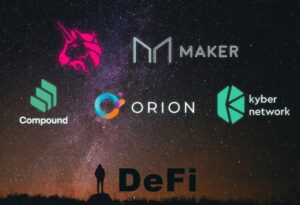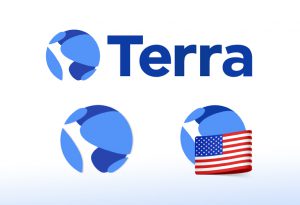
Table of Contents
ToggleIt is extremely likely that you have heard the phrase “the most revolutionary thing about bitcoin is the technology that makes it possible“. If you still do not understand this phrase, perhaps today I can give you a hand, as I am going to make sense of it through the presentation of blockchain technology use cases.
Those of us who find value in this technology, consider it interesting that new users who come into contact with bitcoin or other cryptocurrencies, are not blinded by prices and understand the potential that lies behind them.
These blockchains allow us to shape systems that do not require a centralized entity to control people’s behavior, which is modeled or directed through consensus mechanisms. But before getting to know these use cases, let’s understand what this technology offers us.
First, what does a blockchain bring us?
A blockchain gives us the possibility to create decentralized systems in which, by means of base consensus, we can trust that:
- There will be sufficient incentives for network participants to behave in an honest manner
- The system information will be stored in multiple repositories (quantity equal to the number of nodes in the network).
- This information will always be available and can be easily verified by any user.
- Once stored, the information cannot be deleted or modified.
- Collaboration will be facilitated between actors who do not know each other, but who share a common goal.
After this brief and non-exhaustive list of characteristics that a blockchain has, we can imagine the problems it solves. Thanks to the consensus by which they are ordered, blockchains eliminate the need for a centralized third party to verify exchanges, so that there is trust. Also through consensus, unknown users can trust each other and work towards common goals.
The decentralization of information storage leaves behind the problem of a single server and the failure of the system if it fails. Transparency, accessibility and impossibility of modifying the information, gives users confidence, providing the feeling that there is nothing to hide.
It is worth mentioning that there is a type of technology that encompasses blockchain as a species. It is known as DLT, “Distributed Ledger Technology”. The blockchain has two particularities that distinguish it, within this class that contains it:
- It is organized by means of blocks
- Through cryptographic solutions, it ensures the correct temporal order of the data, its validity and immutability.
But, before continuing, a word of caution.
Not every activity needs a blockchain
A mistake that those of us who enjoy the benefits of this technology tend to make is to want to implement it in all the areas in which we find ourselves. There are many activities that would completely lose their meaning if they were decentralized. Centralization is not bad “per se”. However, from my point of view, there are certain activities that in a decentralized way would work better.
On the other hand, blockchain technology is extremely expensive. Its development is complex and carries a significant time burden until a correct implementation is achieved. For these reasons, it is necessary to analyze in which aspects this technology could benefit the field to which we wish to approach it and make the relevant calculations to determine to undertake a transformation of this style.
Now, with the necessary caveats exposed, we can continue with the use cases of this fabulous technology.
Current blockchain use cases
While explaining some examples mostly spread in our ecosystem, I will also be able to emphasize the benefits that the implementation of blockchain technology brings to each use case.
Peer-to-peer transactions
Since its birth, Bitcoin came to solve this problem. Those who have tried to make transoceanic transactions, will understand what inconveniences I am talking about. Extremely high costs, unusual delays and friction between different entities involved are just some of the obstacles we can encounter.
Of course, if we talk about peer-to-peer transactions without a centralized entity hindering the exchange, the Bitcoin blockchain is the first to come to mind. However, there are new solutions within the ecosystem that allow this type of transactions to be carried out with greater speed, at even lower cost and with coins that do not run the risk of changing their price as they change ownership.
The first major use of this technology, to date, continues to be one of its main advantages.
Cryptocurrencies
Undoubtedly, this new form of programmable, cryptographically protected, traceable and transparent money is a great derivative of the implementation of this revolutionary technology. Gone is the need for:
- A Central Bank in charge of printing money
- Manipulation of monetary policies
- Lack of transparency
With the emergence of cryptocurrencies, a better money has seen the light of day. A form of money whose characteristics are determined at the moment of its birth and whose management is carried out by self-organized communities with a shared objective.
The blockchain revolution finds in cryptocurrencies its most powerful argument to establish itself in the future.
Decentralized finance
In the western summer of 2020, this small niche had its big explosion. It left behind the total figure of 9 billion dollars, to reach a peak of 100 billion and today, in the midst of a market hit by uncertainty and the meager macroeconomic situation, it is around 50 billion dollars.
This ecosystem began by replicating the applications that existed in traditional finance, but its great evolution came from innovation. It is a system in which most of the applications are “open source”, so anyone has access to the code behind them and is invited to build on them.
These characteristics, added to the impossibility of discriminating users (therefore all those who have the necessary means) can be part of it, generated the “boom” of DeFi applications. With yields far superior to their rivals of the old financial order, they showed us that this use of technology is just beginning.
Democratization of access to finance, more freedom to build and innovate, are novel features for small entrepreneurs and investors.
Management of decentralized institutions
The tools mounted on the blockchain have led us to rethink institutions as we know them today. Thanks to the germ of decentralization, which took hold of those of us who came into contact with the ecosystem, new forms of organization have emerged.
Of course, I am not talking about any other type of entity than a DAO. Thanks to governance tokens, which supplant shares and their power of voice and vote, decentralized registries and that spirit of non-discrimination, there is a new way of managing institutions. Once again, we have blockchain technology to thank.
Immutable data record
When we mention the acronym NFT, the chances of picturing a pixelated image of a Punk or a bored ape are high. However, NFTs are tokens that can contain data of any kind, and when issued on a blockchain, their ownership becomes verifiable and immutable.
In short, NFTs allow us to individualize the ownership of any object, data, information or solution we want. A growing example is the registration of songs as NFTs, which would facilitate not only the identification of the owner, but also disputes regarding their rights.

Potential blockchain use cases
Beyond the fact that there are examples of solutions that are already working on the use cases that I will mention below, the reason for including them under this heading is the need for their expansion and further development, since they would contribute, in my opinion, to improve the service and experience of the user immersed in the following activities.
Let’s review some situations that blockchain technology would be able to improve, in case it is adopted as the basis on which these processes are mounted.
Voting
In recent years, there has been much discussion about the implementation of electronic voting. For those of us in the crypto universe, it is commonplace to participate in votes to which we have access by means of electronic voting:
- Holding a token or cryptocurrency
- Ownership of a NFT (POAP as the major example)
From our experience, we understand that the implementation of this type of solution would provide practicality and transparency to our denigrated electoral systems. In use cases such as the current one, it is not necessary to implement a blockchain with all the features that we know Bitcoin or Ethereum.
What can be extracted is:
- Transparency and accessibility of data
- Validity of data, guaranteed by cryptographic methods
Part of the confidence lost in politicians, by the general population, could be regained through such implementations.
Property registrations
As I mentioned when highlighting NFTs as a current use case, implementing land registries on blockchain technology would endow these antiquated and bureaucratic institutions with:
- Transparency
- Simple accessibility to the ownership of the assets
- Validity of records, guaranteed by cryptography
Now let’s think of a world in which registering an asset is synonymous with issuing an NFT on a blockchain and transferring it, sending it to its new owner. Evidently, the improvement can be visualized in a simple way.
Public spending
Again, I raise a use case where blockchain can restore the trust lost by a very simple feature: the lack of transparency. In relation to the next point, I can think of the following solution:
- State-controlled but open-source blockchain developed
- The State stores all its revenues in a smart contract, whose holdings are plausible for verification by any user.
- Every expenditure made by the State will be recorded in this new network and can, of course, be verified by any citizen.
- In case of disputes, factual evidence of the existence of the expense will remain in the network.
Through this technology, a fairer world seems to be more attainable.
Tax collection
Certainly, a sensitive topic within the crypto world. As we know, cryptocurrencies are still in the process of regulation, partly due to the lack of understanding of this world. A large part of the “crypto-users” are in this ecosystem, precisely to escape the financial suffocation resulting from the payment of taxes.
But let us continue dreaming of an ideal world. Let’s imagine that the States organize their votes through an “open-source” blockchain to which we all have access as verifiers. Subsequently, these States own another blockchain, in which their expenditures are, again, verifiable by any citizen.
In this plane of transparency and recovery of trust, why not create smart contracts that automatically calculate the amounts to be paid in terms of taxes and contributions are derived to the wallets of the blockchain of public spending? Both parties would benefit from the implementation of this technology, which today knows no limits.
Charity
Another activity, which in the eyes of many disbelievers or hopeless people lacks traceability and transparency. Smart contracts mounted on blockchains, would not only guarantee full access to these records by any contributor, but also contributions and subsequent donation or use could be automated.
In this sense, develop a contract that is able to request a certain amount of money from the participants and send it directly to the beneficiaries of the collection.

Final thoughts
The birth of Bitcoin occurred just a few years ago, while its popularity, or its landing in the mainstream, took a few more years. Ethereum is only a few years old and its great contribution to the world, smart contracts, is still looking for its best version.
In an article of a few words I was able to present existing cases and some on which blockchain technology could provide interesting solutions. Knowing these use cases, it may be somewhat simpler to understand why the most revolutionary thing about bitcoin is the technology that makes it possible.
Automation, traceability and transparency are some of the features that blockchain can bring to the traditional world. Undoubtedly, features that both the bureaucratic State apparatus and the business world lack.








